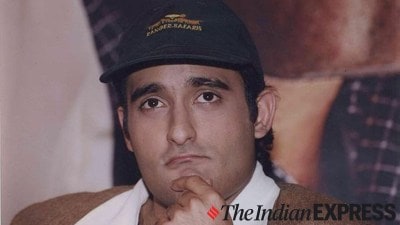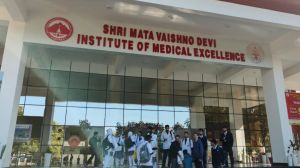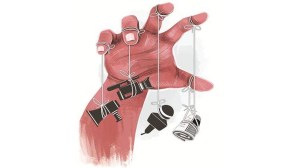India146;s killing fields
The first politician I met in 2006 was Sharad Pawar. It was a fortuitous meeting because this column now has a new cause. Agriculture. Borin...

The first politician I met in 2006 was Sharad Pawar. It was a fortuitous meeting because this column now has a new cause. Agriculture. Boring? Yes, it is but listen to what our Agriculture Minister had to say and you might not find it so boring after all.
I confess that even I, a farmer8217;s daughter, have found it hard to be passionately interested in agriculture. There is such a dreary quality about the sound of the word and it invokes all those depressing images of the 8216;real8217; India8230;flies, open drains, squalid hovels and the stench of cow dung and human waste. The sad thing is that it does not have to be this way and as long as it is this way we can forget about India becoming an economic superpower or even just a developed country. This affects us all and if for no reason than that we need to show more interest in agriculture.
It has become fashionable these days for politicians to talk of agricultural reform. Only last week the Prime Minister called for a second green revolution. Addressing the 93rd Indian Science Congress in Hyderabad, he said: 8216;8216;Let me focus attention on three challenges that science and technology must address to promote development. First, we need to increase agricultural productivity8230;We need to increase factor productivity whatever that means and develop technologies that conserve energy and water8230;and finally, to generate employment in rural areas.8217;8217;
Ad nauseum we hear talk about the need for 8217;agricultural reform8217; without anyone explaining what this means exactly and ever since I became a political columnist I have heard politicians hold forth on increasing the 8216;8216;purchasing power8217;8217; of farmers. But, it was only when I met Mr Pawar on New Year8217;s day in a Maharashtrian village by the sea did I understand why we seem to get nowhere when it comes to improving the lot of those who depend on agriculture for their livelihood and their way of life8212;Seventy per cent of India8217;s population, and that is a problem in itself because, as Mr Pawar pointed out that New Year morning, the rich countries are those in which less than 5 per cent of people depend on agriculture.
I think the conversation began by me asking him what sort of reform was needed in agriculture and what he was doing about it as Agriculture Minister. He gave me the sort of withering look experts reserve for non-experts who ask cheeky questions and then held forth. He is passionate about agriculture.
Did I know that under the government of Shri Atal Behari Vajpayee investment in agriculture came down to less than 1 per cent of GDP? Did I know that investment in irrigation was less than a half per cent of GDP? I admitted that I did not and tried not to look too shocked by the statistics he was giving me. Is it any wonder that Vajpayee8217;s government was booted out?
We cannot begin to talk of agricultural reform until we recognise that the first requirement is a massive increase in investment, especially in irrigation. Since the Sonia-Manmohan led coalition took power there has been a slight increase in agricultural investment and Mr Pawar is trying to ease the controls that prevent our farmers from selling their produce where they like, but the change will make only marginal difference.
To expect farmers to produce crops without irrigation is like expecting Infosys to produce software without computers. Yet we spend less than half per cent of GDP on irrigation. What is wrong with our planners and policy makers?
Most countries with vast populations depending on agriculture for a living make sure that what farmers produce does not go waste. Brazil processes more than 80 per cent of its farm produce, and we how do we compare? India processes less than 20 per cent of farm produce and there are no signs yet that the government has understood the importance of food processing.
Our political leaders fight angry battles in the fora of the world about agricultural subsidies in developed Western countries. How will our poor farmers compete, they cry, and those hypocritical lefties are forever railing against the duplicitous ways of the WTO, but nobody bothers to notice that without cold storages, refrigerated trucks, good roads and other infrastructure our farmers cannot get their produce to our own airports, leave alone to international markets.
Our farmers are so mired in desperate poverty that in supposedly rich states like Punjab and Maharashtra we hear of farmers routinely killing themselves as the only escape. Nothing will change until we see massive investment in agriculture. Governments need to find the money to do this and one way would be privatisation, but here the Marxists come in the way because for them a few thousand workers are more important than hundreds of thousands of peasants. What sense does that make?
Write to tavleensinghexpressindia.com
- 01
- 02
- 03
- 04
- 05































